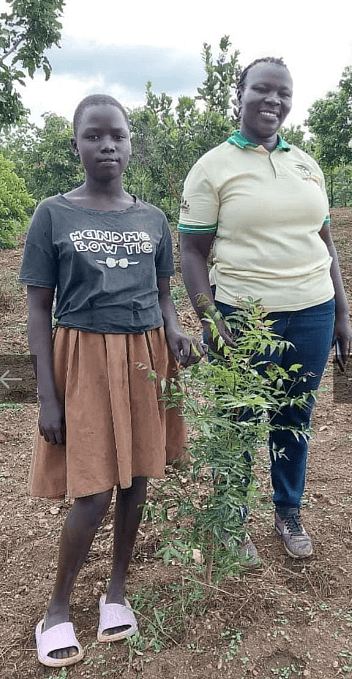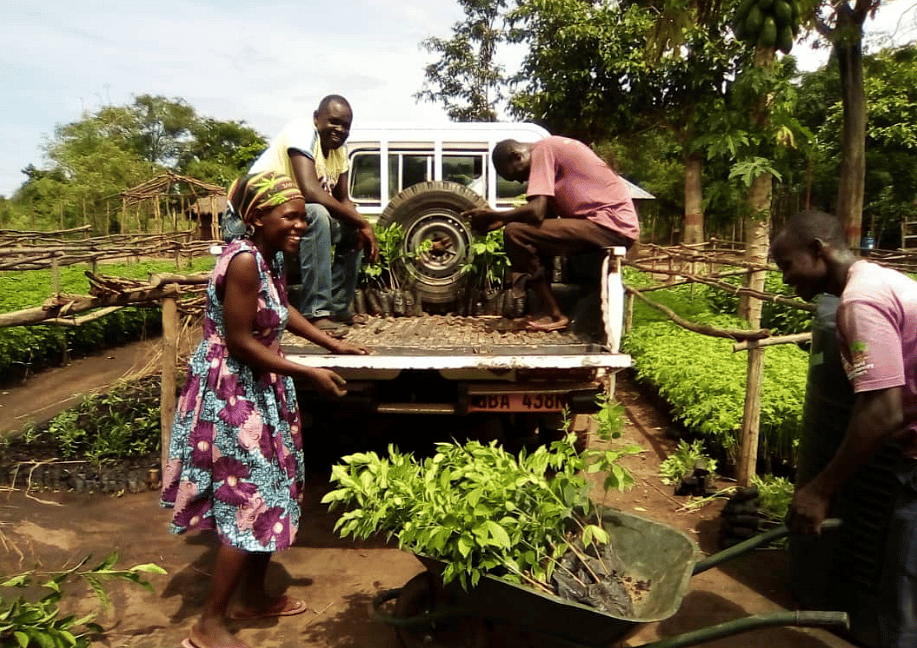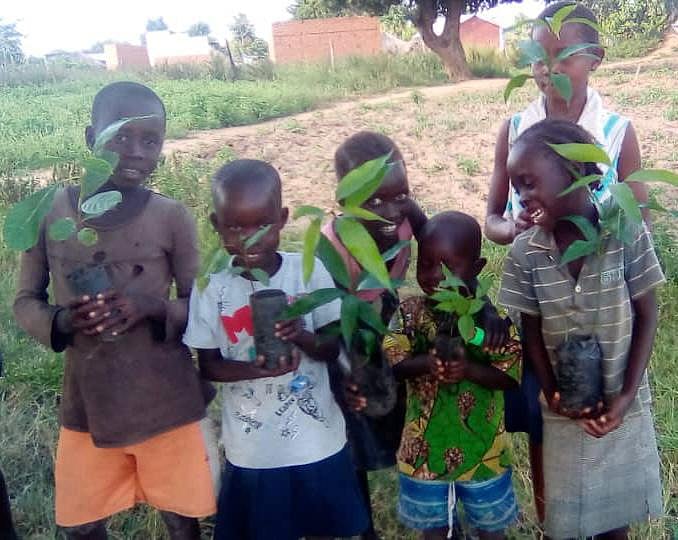Our Terms & Conditions | Our Privacy Policy
Indian Initiative Brings Jobs, Trees, & Hope To Uganda’s Refugees
World Africa Day is observed on May 25 every year. Africa’s Uganda continues to grapple with the growing pressures of hosting large numbers of displaced people. According to the UNHCR’s latest data, over 125,000 new refugees arrived between September and October 2024 alone-primarily from Sudan, the Democratic Republic of Congo (DRC), and South Sudan. While Uganda’s progressive policies grant these individuals the right to work and move freely, challenges persist in accessing employment, healthcare, clean water, and education.
As Africa commemorates its unity and resilience on Africa Day, a unique initiative from India is quietly transforming the lives of thousands in Uganda. A project titled ‘Trees for Refugee Wellness’, spearheaded by Indian social enterprise Grow-Trees.com, is planting more than just greenery-it’s sowing seeds of opportunity for refugees in northern Uganda.

Jobs through reforestation
Against this complex backdrop, Grow-Trees.com is bringing a solution that’s both environmentally sustainable and economically empowering. In Uganda’s Arua district, home to the Rhino Camp and Imvepi Refugee Settlements (with a combined population of 170,000), the organisation has launched a tree-planting initiative that is not only restoring degraded land but also creating short-term income opportunities.
So far, nearly 7,000 trees out of a 50,000-tree goal have been planted. The program has also generated 4,000 paid workdays, providing refugees and local Ugandans with much-needed income.
Women at the forefront
A standout feature of the initiative is its focus on empowering women. Over 35% of the paid workdays have been designated for women, enabling them to earn an income, gain skills, and contribute to family decision-making. Women are engaged in various stages of the reforestation process-from nursery development to planting and harvesting.

Pradip Shah, co-founder of Grow-Trees.com, highlights the social impact saying, “For many displaced families, consistent income is rare. This initiative allows women to step into meaningful roles, reducing domestic burdens and giving them greater control over their economic lives.”
Trees That Nourish and Sustain
The species selected for plantation, such as jackfruit, neem, papaya, mango, tamarind, mahogany, shea nut, and white teak-were chosen carefully to meet both environmental and community needs. These trees provide fruit, timber, shade, and soil improvement, while also aligning with the local climate and biodiversity.
Grassroots partnerships strengthen impact
The success of the program is deeply rooted in collaboration with local women’s groups and grassroots NGOs. These partnerships ensure that the work is culturally relevant and directly aligned with the needs of the community. Beyond planting trees, the project is also linked to livelihood training, helping women develop new skills, access larger markets, and become self-reliant.

“When women take the lead in reforestation, the entire community benefits,” says Shah. “They bring in local knowledge and long-term commitment that’s critical for the survival of these trees and the success of the program.”
As Uganda continues to provide refuge to those in need, initiatives like ‘Trees for Refugee Wellness’ show how sustainable development can offer both environmental recovery and economic empowerment. On this Africa Day, it’s a reminder that hope can take root, even in the most displaced of places.
[ad_1]
Images are for reference only.Images and contents gathered automatic from google or 3rd party sources.All rights on the images and contents are with their legal original owners.
[ad_2]



Comments are closed.